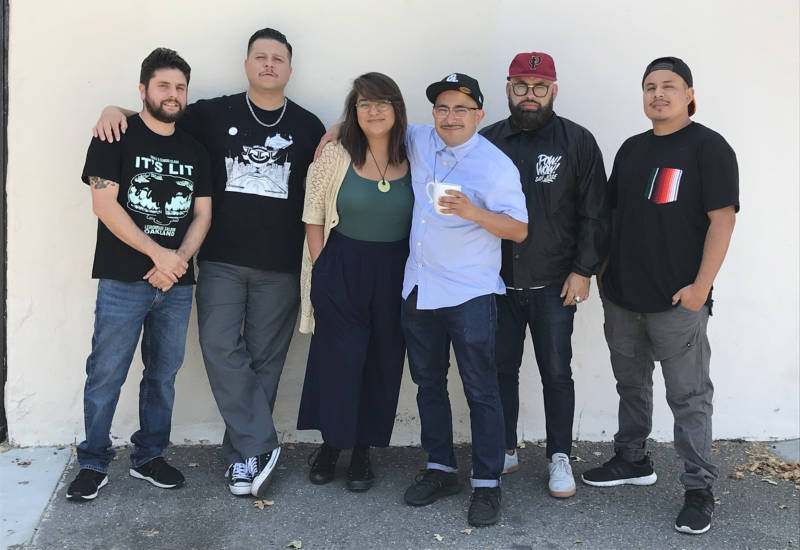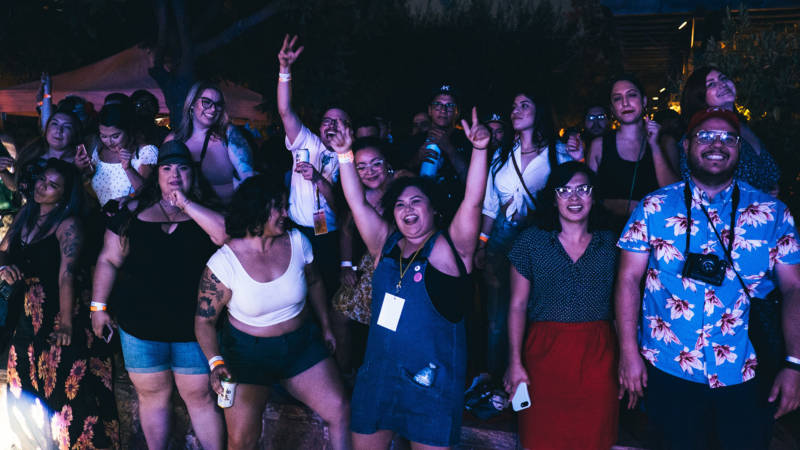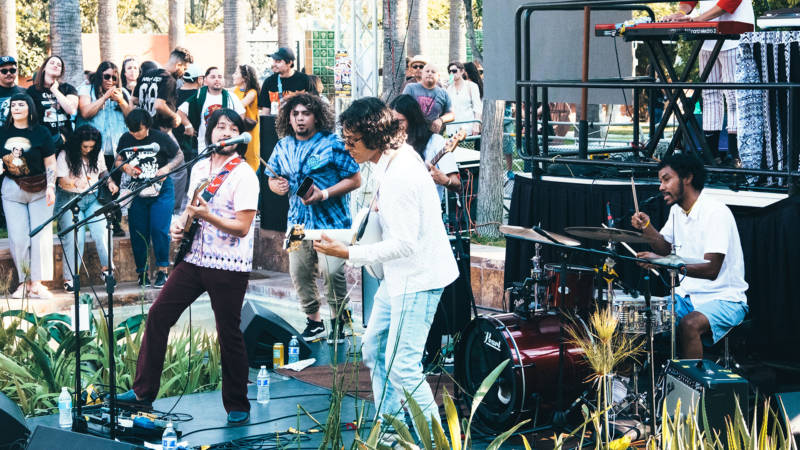By Azucena Rasilla
Before Chicanx singer-songwriter Cuco had international buzz, he was handpicked to perform at Sonido Clash Music Fest, a small but influential upstart out of East San Jose, in the heart of Silicon Valley.
For the past ten years, the Sonido Clash crew has created a platform for emerging, out-there Latinx sounds, curating events with an eclectic mix of genres such as punk, cumbia, alternativo, oldies and hip-hop. The collective (comprised of Angel “Mextape” Luna; Roman Zepeda, a.k.a. Turbo Sonidero; Thomas Ramon Aguilar, a.k.a. Chale Brown; Osvaldo Chavez, a.k.a. Sonido Ozzy; Quynh-Mai Nguyen; and Fernando J. Pérez Fiesco, a.k.a. Tlacoyo) reflects the Bay Area’s melting pot, and is committed to representing Eastside San Jose’s Latinx community amid ongoing gentrification.
With DJs and culture workers among their ranks, the members of Sonido Clash have a knack for booking buzzworthy acts before they blow up, and for introducing important international artists to the Bay Area music scene. For the festival’s fourth installation on Sept. 1, expect to hear music from Argentine-Spanish perreo artist Ms Nina, cumbia DJ G-Flux from Mexico City and headliners Nina Sky, the Puerto Rican twin duo known for 2000s pop hits like “Move Ya Body.”

Sonido Clash’s events represent a multicultural viewpoint familiar to many Latinx folks in the United States, where cumbia and ranchera sounds might be the norm in some households, while soul, hip-hop and oldies are in rotation in others. Previous editions of Sonido Clash Music Fest have featured new and old-school acts alike, such as Mexican dembow producer Chico Sonido, garage-pop band Los Blenders, electronic “cholo goth” duo Prayers and electro-funk pioneer Egyptian Lover.
Keeping it hella San Jose, the festival takes place at the School of Arts and Culture at the Mexican Heritage Plaza. Since 1999, the Mexican Heritage Plaza has been a hub for Chicanx culture in the South Bay, hosting concerts by Mexican bands like Kinky when rock en Español reigned supreme. For the past four summers, Sonido Clash Music Fest has transformed the campus into a vibrant celebration of Latinx youth culture.



